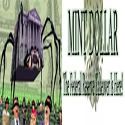This bit of relative antiquity defines the role of the US Military in our lives and keeps us from becoming little more than a wealthy banana republic.
Currently, America's military is largely prohibited from acting as a domestic police force. And while the presence of military "advisors" during the siege, brutality and slaughter at WACO Texas set ominous trends in motion, few thought in terms of its implications. But that was before the terrorism of September 11, 2001, now glibly called "911."
"Our way of life has forever changed,'' wrote Sen. John Warner R-Va., in an October 2001 letter to Defense Secretary Donald Rumsfeld. "Should this law [Posse Comitatus Act] now be changed to enable our active-duty military to more fully join other domestic assets in this war against terrorism?''
The law, was championed by far-sighted Southern lawmakers in 1878. They had experienced a fifteen year military occupation by the US Army in post-Civil War law enforcement. They understood the heel of a jackboot.
In a nutshell, this act bans the Army, Navy, Air Force and Marines from participating in arrests, searches, seizure of evidence and other police-type activity on U.S. soil. The Coast Guard and National Guard troops under the control of state governors are excluded from the act.
Deputy Defense Secretary Paul Wolfowitz, testifying in October before the Senate Armed Services Committee, agreed that it might be desirable to give federal troops more of a role in domestic policing to prevent terrorism. "In certain cases we can do more than anyone else in the country because of the special capabilities that we have,'' he said.
Dennis Corrigan, a retired colonel who taught the law at the Army's Judge Advocate General's school, says legislators should resist the urge to change it. The military isn't trained to be a police force, he says, so it should stick to the skills for which it is trained: surveillance, information gathering, logistical support. All of these activities are allowable under Posse Comitatus. "I'm not sure, even with what's going on today, that Congress wants the military arresting people.''
But Michael Spak, former Army JAG colonel now teaching at Chicago-Kent College of Law had another spin. "It's good for the law to tell the truth and for everybody to follow the law,'' he said. "But is it necessary? No.''
Many American politicians and bureaucrats hold what might be called a "Consumerist" interpretation of freedom. In a nation where liberty is defined by the ability to choose from a variety of breakfast cereals, it may not be long before the supermarket cash register will be nicknamed "Checkpoint Charlie."
Saturday, February 16, 2008
1878 Military Law Gets New Attention
Subscribe to:
Post Comments (Atom)










0 comments:
Post a Comment